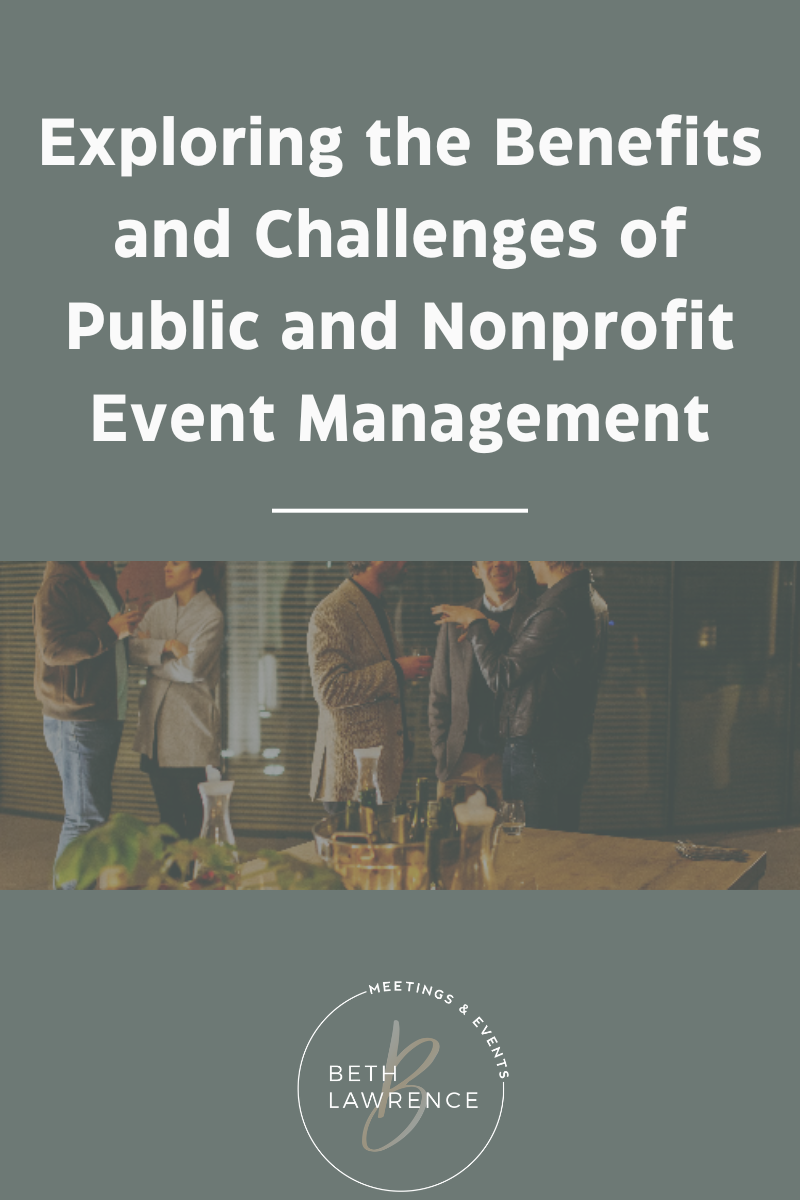Exploring the Benefits and Challenges of Public and Nonprofit Event Management
Attention-grabbing events have the power to captivate and unite communities, but behind the scenes, public and nonprofit event managers face a unique set of challenges. Public events, typically organized by government bodies, aim to engage the masses, while nonprofit events serve essential causes.
We’re exploring the benefits and challenges of public and nonprofit event management. From maximizing community impact to navigating limited resources, understanding the intricacies of these event types is crucial for successful planning.
Benefits of Public Event Management
Public event management offers many essential benefits in fostering community engagement and participation. By organizing community events, public event management initiatives create opportunities for individuals to come together, connect, and build a sense of belonging. Moreover, these events facilitate a platform for local businesses to promote themselves, attracting potential customers and event sponsorship opportunities.
Another advantage is the boost to the local economy and tourism that public events generate. They attract visitors from outside the community, injecting money into local businesses and hotels. This economic impact creates a ripple effect, benefiting various sectors and stakeholders. So, whether it's the sense of community, economic prosperity, or the chance to showcase local enterprises, public event management offers valuable advantages that promote growth and development within any community.
Challenges of Public Event Management
Organizing public events can be thrilling but comes with its fair share of challenges. One of the biggest hurdles event managers face is securing the necessary funding and sponsorship to bring their vision to life.
Without adequate financial support, event planning can quickly become a task riddled with roadblocks and compromises. Also, navigating through the complex web of permits and regulations can be daunting, requiring a deep understanding of local laws and regulations to ensure compliance. This challenge highlights the importance of being well-versed in event permits and regulations to avoid potential legal issues and fines.
Lastly, managing large-scale logistics and crowd control demands meticulous planning, as the success of an event is often determined by how well organizers handle the flow of attendees and maintain order. Event organizers can create a safe and enjoyable experience for all participants by prioritizing crowd management strategies. Despite these challenges, public event management can be advantageous, allowing organizers to create memorable experiences and foster community engagement.
Benefits of Nonprofit Event Management
In the world of event management, nonprofits hold a unique position. The benefits of nonprofit event management extend beyond simply hosting a successful gathering. One of the primary advantages is the opportunity to build awareness and financial support for a cause. By aligning the event with a specific mission or charitable purpose, nonprofits can raise funds and public consciousness about pressing issues.
Additionally, nonprofit events provide invaluable opportunities for volunteer engagement and community service. By mobilizing a network of volunteers, organizations can create a sense of collective purpose and shared responsibility.
Nonprofit events have the potential to foster long-term donor relationships. By engaging individuals emotionally in a cause, nonprofits can tap into their desire to make a meaningful impact. Fundraising events can serve as a gateway for supporters to become ongoing donors, ensuring sustainability for the organization.
Challenges of Nonprofit Event Management
Nonprofit event management entails the unique struggles that organizers must navigate to ensure the success of their initiatives. At the top of the list is the limited budget and resources available, which often pose obstacles to creating the kind of impactful experiences that donors and attendees desire. With nonprofit event budget constraints in mind, organizers must get creative and leverage partnerships and sponsorships to stretch their resources as far as possible.
Another hurdle is sustaining momentum and generating repeat attendance. While attracting attendees for the first event might not be difficult, maintaining their interest and ensuring they return for future events can be daunting. Event attendee retention becomes crucial, requiring organizers to focus on delivering exceptional experiences, personalization, and targeted marketing efforts.
Nonprofits often face donor fatigue and competition for donations, finding innovative ways to overcome these complexities. By telling compelling stories, highlighting their work's impact, and engaging donors in meaningful ways, nonprofits can help combat donor fatigue in their industry and foster ongoing support for their events.
Navigating these challenges can be tricky, but with a strategic approach that combines creative problem-solving, focused marketing efforts, and a commitment to providing value, nonprofit event management can succeed, make a difference in the community, and achieve its goals.
Get Ready for Unparalleled Success at Your Next Professional Event
Don't let the overwhelming challenges of event planning hold you back from achieving greatness. At Beth Lawrence Co., we understand the stress of managing countless tasks and meeting tight deadlines. Our team of experts is dedicated to removing all the burdens of event organizing and ensuring outstanding results that exceed your expectations.
Ready to host an event that leaves a lasting impression? Contact us today and unlock the keys to success!

